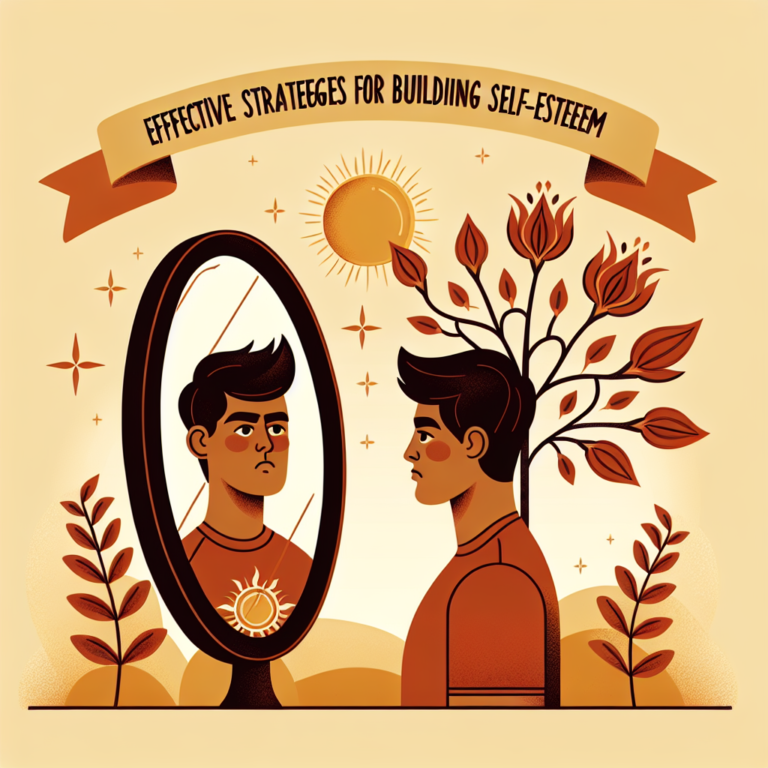
Social Comfort: Essential Strategies to Ease Anxiety in Daily Life
Introduction
Imagine walking into a room where the atmosphere is thick with tension, where conversations fade as eyes turn towards you. Anxiety rises, and suddenly, the once-exciting prospect of socializing feels like an uphill battle. For many, this scenario is an all-too-familiar reality. The concept of social comfort—feeling at ease and confident in social situations—can often seem elusive. With the prevalence of anxiety disorders today, how do we cultivate social comfort in our daily lives? This article delves into Social Comfort: Simple Strategies to Ease Anxiety in Daily Life, offering unique insights and practical solutions that promise to transform daunting social encounters into fulfilling interactions.
Understanding Social Comfort
What is Social Comfort?
Social comfort refers to the state of feeling relaxed and at ease in social settings. It encompasses both mental and emotional well-being, allowing individuals to engage freely with others, express themselves, and navigate various social scenarios without overwhelming anxiety.
The Importance of Social Comfort
Social comfort is not merely a luxury; it is a crucial aspect of mental health. Comfortable social interactions enhance self-esteem, build relationships, and positively impact overall emotional well-being. Research suggests that high levels of social comfort lead to improved social skills, better job performance, and greater happiness.
The Link Between Anxiety and Social Interactions
For many, social anxiety manifests in overwhelming fear of judgment or rejection. According to the Anxiety and Depression Association of America, about 15 million adults in the U.S. suffer from social anxiety disorder. Understanding the triggers and effects of this anxiety is the first step toward finding ways to ease it.
Strategies to Cultivate Social Comfort
1. Start Small: The Minor Interaction Method
One effective way to ease into social comfort is through small, manageable interactions. A brief encounter at a local coffee shop or a simple hello to a neighbor can set the stage for more significant interactions.
Case Study: Jessica’s Journey
Jessica, a college student, dreaded mingling at networking events. By initiating brief conversations with classmates in the cafeteria, she gradually built her confidence. Over a few weeks, she transitioned from small talks to engaging discussions at events, ultimately landing a coveted internship.
Analysis: Jessica’s experience illustrates the power of small steps. These minor interactions set a foundation for more significant social engagements, reinforcing the idea that social comfort can be developed progressively.
2. Mindfulness and Breathing Techniques
Practicing mindfulness can significantly enhance social comfort by grounding you in the present moment. Techniques such as deep breathing can quell rising anxiety and enhance focus during social interactions.
The 4-7-8 Breathing Technique
- Inhale through your nose for 4 seconds.
- Hold your breath for 7 seconds.
- Exhale slowly through your mouth for 8 seconds.
Implementing this technique before a social situation can help in calming anxious thoughts.
3. Role-Playing with Friends
Role-playing can be an effective tool to improve social comfort. Partners or friends can act out various scenarios, allowing you to practice responses and reactions.
Case Study: The Confidence Builder
Mark, who faced challenges with public speaking, found solace in rehearsing with a trusted friend. They simulated real-life scenarios where Mark would have to present. The practice not only improved his skills but also significantly reduced his anxiety during actual presentations.
Analysis: This case emphasizes the benefits of preparation. Role-playing fosters adaptability and confidence, crucial components of social comfort.
4. Join a Group or Class
Engaging in groups with shared interests can significantly lessen social anxiety by providing a common ground for interaction.
Finding Your Tribe
Joining a book club or taking art classes can create a welcoming environment where conversations naturally flow, reducing the pressure to perform.
5. Positive Self-Talk
Internal dialogues can strongly influence our feelings and actions. Replacing negative thoughts with positive affirmations can enhance self-esteem and foster a sense of social comfort.
Examples of Affirmations
- “I am confident.”
- “I bring value to conversations.”
- “It’s okay to make mistakes.”
6. Setting Realistic Expectations
Avoiding the pressure of perfection can ease the anxiety surrounding social interactions. Understanding that it’s acceptable to have off days can lead to more authentic experiences.
The Role of Environment in Social Comfort
Creating a Supportive Atmosphere
The physical and emotional context of social interactions matters. Whether it’s a cozy café or a bustling party, the environment can impact comfort levels. Opt for settings that feel safe and inviting.
Comfortable Spaces: Challenging Common Fears
For instance, if crowds intimidate you, consider smaller gatherings until you’re ready to tackle larger crowds. This adaptability reinforces the sense of social comfort.
Chart: Comfort Levels in Varying Environments
| Environment Type | Comfort Level (1-10) | Notes |
|---|---|---|
| Cafés | 8 | Familiarity with the setting enhances comfort |
| Parties | 5 | Crowded and noisy, may induce anxiety |
| Small Gatherings | 7 | Personal connections foster comfort |
| Public Speaking | 3 | High anxiety; requires practice |
Conclusion
Social comfort is an essential component of a fulfilling life, enabling us to connect authentically and fully embrace our experiences. By implementing these Social Comfort: Simple Strategies to Ease Anxiety in Daily Life, you can transform how you approach social situations. Start small, practice mindfulness, and cultivate supportive relationships, and soon you will find yourself navigating everyday interactions with increased ease.
Take Action!
Begin today. Choose just one strategy to implement in your daily routine, and reflect on your progress. Remember, creating social comfort is a journey, not a destination—you are not alone.
FAQs Section
1. What is social comfort?
Answer: Social comfort is the state of feeling relaxed and at ease in social situations, enabling open communication and authentic interactions.
2. How can I reduce social anxiety?
Answer: Start with small interactions, practice mindfulness techniques, and engage in role-playing or supportive groups to build confidence gradually.
3. Are there specific affirmations that can help with social anxiety?
Answer: Yes! Affirmations like “I am confident” and “It’s okay to make mistakes” can help shift negative thoughts and foster social comfort.
4. How important is the environment in easing social anxiety?
Answer: The environment can significantly affect your comfort level. Opting for familiar, supportive spaces can enhance feelings of safety and ease.
5. Can social comfort improve over time?
Answer: Absolutely! With consistent practice of the strategies outlined, social comfort can grow, leading to greater ease in various social interactions.
With these insights and actionable strategies, you now hold the keys to unlocking your social comfort and easing anxiety in daily life. Embrace the journey!

















